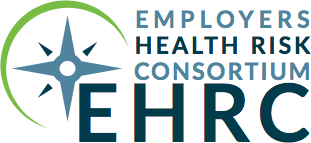Human Resources burnout is a legitimate concern and major issue, not only for multi-national corporations, but also for small and mid-sized businesses. HR burnout can lead to absenteeism, loss of productivity, and eventually voluntary or involuntary terminations. There are multiple ways to help alleviate stress among Human Resources employees through stress training, flexible scheduling, actively showing them appreciation, and other strategies. Instead of trying to manage the symptom, stress, what about looking at the areas that could be the cause? One of those trigger areas is HR’s involvement with your organization’s employee benefits plan.
HR personnel are typically leading the charge in the process of purchasing, implementing, and managing an organization’s employee benefits program. More specifically, these human resources employees are expected to simultaneously be the complete subject matter experts and “in-the trenches” dealing with issues when it comes to the company’s health insurance program, just one piece of the total package their organization provides.
The health insurance program is where many Human Resources professionals feel the most burnt out, as dealing with it takes up a lot of their time. Additionally, there are many details to manage and mounds of paperwork to complete; a plethora of questions to answer; and a myriad of legal issues that could arise for the organization directly related to the health insurance portion of their benefits program.
Help your HR personnel manage the amount of burn they experience by working with them on these three steps:
1. Utilize an online enrollment system
Renewal time for your health insurance program is one of the most stressful points in your HR team’s year. Between the hard deadline, potential for issues to arise in any point of the process, and conversations with each and every employee in the organization, Open Enrollment can become their biggest dread. Seemingly impossible mounds of necessary paperwork on top ends up causing even the most well-organized and efficient teams panic! The best way to help alleviate that pressure and stress is through an online enrollment system.
Instead of hundreds of sheets of paper, Human Resources personnel can easily manage electronic documents and signatures. Instead of endless filing, staff can rest assured that employee files are in a safe and secure cloud-based software system.
One of the systems that we recommend for online enrollment is BerniePortal. Based out of Nashville, TN BerniePortal is the brainchild of Benefits Brokerage Bernard Health. In addition to its resources for HR personnel to manage and implement their organization’s health insurance plan, BerniePortal is also a full-service HR portal for employees to access, similar to that of Paylocity and ADP Vantage, among others.
2. Get access to HR resource solutions
“Re-invent the wheel” is a familiar saying, and it’s likely your Human Resources team is well-versed in the application of this phrase. It often seems that HR has to come up with a new document every other day to help ensure employees are well informed, the organization is protected, training has been provided, or management has the reports they need. Instead of HR personnel feeling like they are always behind, offer your staff systems that contain compliance resources, training videos, and template forms that help your HR staff feel on top of things and up to date.
There is a wide variety of systems on the market, but the one we provide to all of our clients is hr360. hr360 has hundreds of templates and resources: from easy-to-understand information on state and federal employment laws and regulations, to tools that can help streamline HR workflows (i.e. salary benchmarking and job description builders). hr360 is also well-recommended by a variety of industry groups, and even provides FREE tools for you to use regardless of whether you use their paid product.
3. Work with a knowledgeable and responsive insurance broker
HR professionals are not meant to be an island of resources for your organization. Work with them to employ help from organizational vendors such as your lawyers, outside IT, and especially your insurance broker. A knowledgeable and proactive broker will not only work to ensure you have the coverage you need if the worst happens, but they can help you seize opportunities to improve your benefits offerings and cut costs in ways that other vendors cannot. Tools and initiatives focused on internal and external risk-management, employee engagement, and strategic planning are just a few of the ways that your broker can help serve you. All you have to do is ask!
If you want to talk with a broker that is both knowledgeable, proactive, and ready to serve, feel free to contact us.

 (540) 433-2796 |
(540) 433-2796 | 


